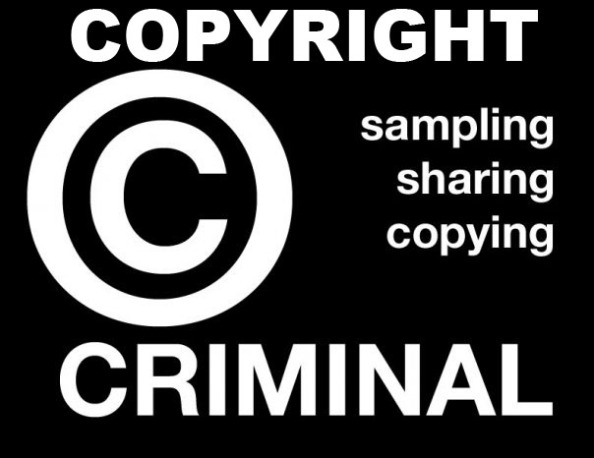The accessibility to online content has grown to astounding lengths. We have the ability to access almost anything online from television shows to new music. With this capability we often forget that most of the content we are viewing is copied from someone else’s work. Kirby Ferguson’s Everything is a Remix videos verifies that a vast amount of songs we listen to have been copied from previous artists, as even the infamous Led Zeppelin were known to “borrow” from different artists. Does this mean that they are not creative enough to come up with their own content, or that they are given the ability to take something old and make it new and exciting? The main problem at hand is society today, more specifically those who participate in the online world. How can online communities of “producers-consumers” literate in new media work toward building a robust and freely accessible cultural commons in the face of restrictive copyright laws?
Raymond’s blog states, “Yes, copyright laws are scary and no one wants to get implicated. However, people online still want to show appreciation and loyalty to particular content, such as a TV series.” There are several ways in which people can watch a missed episode on television. DVR and Netflix give us access to this problem while following copyright laws, however there still is the ability to go online and search for a link of the episode streamed. Some people who do this do not stop to think about if they are violating laws, which makes me think of the saying ignorance is bliss.
The Internet is a primary source and culprit of violating copyright laws. However it is hard to look negatively towards such an invention as it has helped people, businesses and the economy as a whole in so many ways. Jenkins states; “convergence alters the relationship between existing technologies, industries, markets, genres and audiences.” YouTube alone has affected the media industry as a whole as it has turned into a place to be discovered. Take Justin Bieber for example, as he started off singing covers of different artist’s songs and is now one of the most famous pop stars of our time.
In pearlsglitterandpolish’s blog, she mentions how it is a popular trend to be entertained online versus having to pay for monthly cable fees. This brings me back to Netflix (clearly I am a fan) and how it has become so popular in America. It has become a trend for media convergence as well as the economy. Shares for Netflix shot up from $97 to $147 in one day alone, and now rests at $169.56 (until the market re-opens tomorrow)! How did it become so popular? The industry is continually changing. In the long run, the most critical factor is competition. Amazon is now offering a broader content for subscribers of Amazon Prime, and they have a lot more back-up cash than Netflix to keep the fight alive. Granted, Netflix has a first-mover advantage in the business as being focused on streaming, but Amazon has a bigger bank. Another competitor is Hulu, partly owned by Disney, NBCUniversal and Fox. Not yet a big competitor, it is offering streaming service around the same price point as Netflix.
The online content streaming distribution is a relatively easy business to replicate. It seems like only a matter of time for online streaming subscriptions to go up, prompting viewers to find their own resources online. Manovich states: “In modern societies most of the objects which people use in their everyday life are mass produced goods… People build their worlds and identities out of these readily available objects by using different tactics.” This emphasizes the fact that consuming online media content is done a lot more than producing. Reasons can vary such as time, effort, ability, or self-esteem to produce one’s own video. Why make something that is already out there? I know I do not have any time in my day to set aside for producing purposes, which is probably the same for majority online users (or just sheer laziness).
Sean Caley’s blog states, “I also know that many users on YouTube whom upload songs alter the sound pitch to try to avoid having a copyright infringement.” As there are some who completely ignore copyright laws, there are some that will go out of their way in order for their video to be both legal and original. This seems like a lack of creativity, but our generation is now exposed to mixing old songs together to create something new and innovative.
The amount of laws surrounding copyright is quite extensive and it takes someone truly passionate to take the time to produce online content without breaking any. It is hard to build a free cultural commons with everything surrounded by copyright, which is why many people tend to stick to watching videos instead of producing them. As for me, I will stick to the little laughs I get from videos produced from the lives of others.
http://pearlsglitterandpolish.wordpress.com/2013/01/17/my-online-consumption-vs-production/
http://seancaley.wordpress.com/2013/01/17/youtube-in-my-life/#comments
http://allenmendelsohn.com/2012/03/copyright-infringement-is-a-dangerous-crime/
Manovich, l. (2008) The Practice of Everyday (Media) Life: From Mass Consumption to Mass Cultural Production?
Jenkins, H. (2004) The Cultural Logic of Media Convergence International Journal of Cultural Studies March 2004 7: 33-43
Everything is a Remix from Kirby Ferguson on Vimeo.
